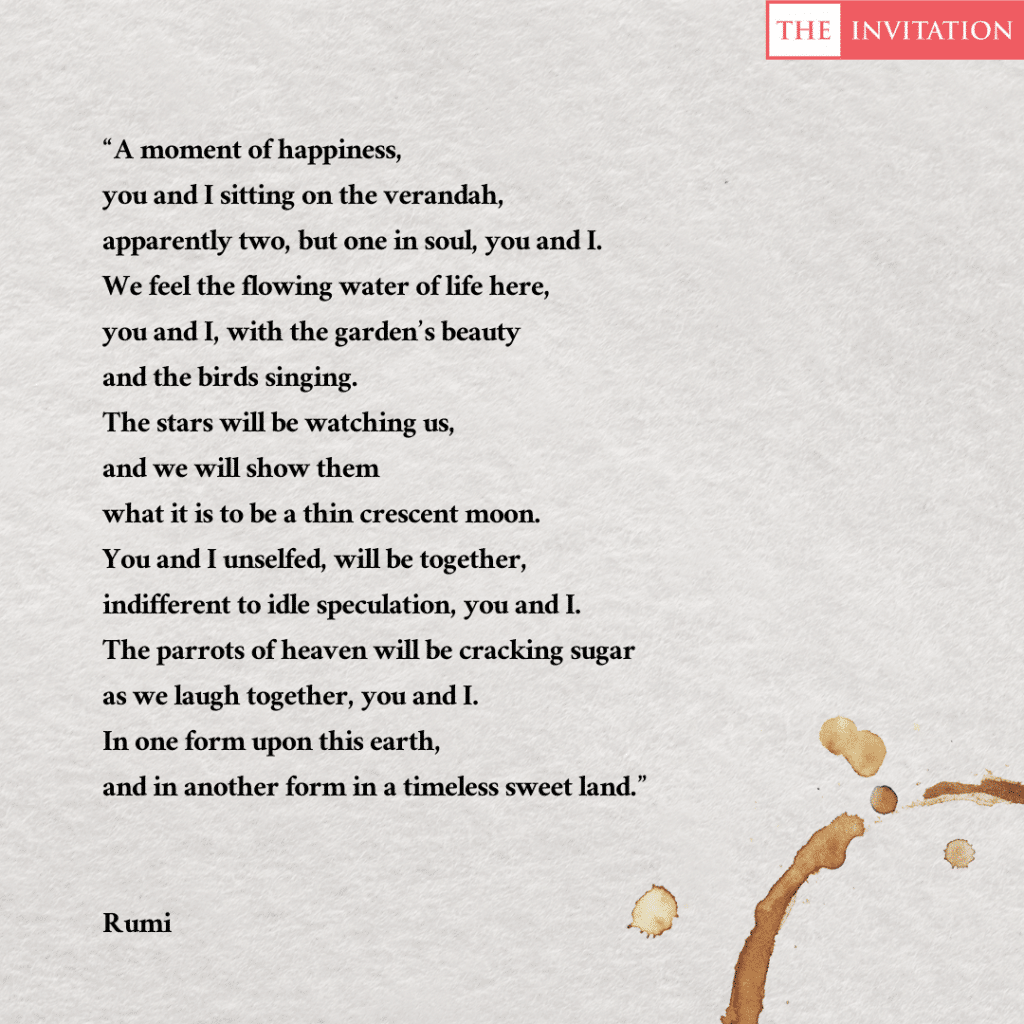The exploration of spiritual beliefs can be a profound journey, with myriad paths leading to enlightenment and understanding. Among the luminaries of poetic thought, Rumi stands as a quintessential figure, whose works have transcended cultural and temporal boundaries. His profound insights into the human experience provide a rich tapestry from which individuals can draw inspiration as they embark on their spiritual quests. Within the framework of Bahá’í teachings, Rumi emerges as an exemplary starting point, enabling seekers of truth to cultivate a refreshed perspective and ignite their curiosity.
Rumi’s poetry, steeped in Sufi mysticism, encapsulates the essence of the human condition, addressing love, longing, and the quest for the divine. His ability to articulate the complexities of existence proffers seekers a means to resonate with their inner selves. The sentiments encapsulated within his verses can serve as a catalyst, propelling individuals toward spiritual exploration, while concurrently aligning with Bahá’í principles of unity, love, and the quest for knowledge.
1. The Universality of Rumi’s Message
One of the most compelling aspects of Rumi’s poetry is its universality. Regardless of one’s background, his words evoke a sense of familiarity and understanding. Rumi asserts that love is the fabric of the universe, a theme echoed in Bahá’í teachings which emphasize oneness. The idea that all humanity is interconnected resonates deeply within both Rumi’s work and Bahá’í philosophy. As seekers delve into Rumi’s poetry, they may discover a newfound appreciation for the shared experiences that bind them to others, fostering a desire to learn more about various spiritual paths.
2. Spiritual Awakening Through Love
At the core of Rumi’s teachings is the notion that love is the transformative force capable of leading individuals to divine understanding. His portrayal of love is multifaceted, highlighting it as both an earthly and spiritual phenomenon. This duality invites seekers to contemplate the significance of love in their own lives. The Bahá’í faith, too, heralds love as central to personal growth and community cohesion. Engaging with Rumi’s verses can trigger a profound realization: that love catalyzes personal enlightenment and nurtures one’s spiritual evolution.
3. The Call to Inner Reflection
Rumi masterfully employs metaphor and allegory to urge readers toward introspection. His poetry frequently prompts individuals to confront their innermost fears and desires, fostering a spectrum of emotional engagement. This call to self-reflection dovetails beautifully with the Bahá’í emphasis on personal examination and the pursuit of truth. Through contemplation of Rumi’s ideas, individuals may find themselves evaluating their beliefs and motivations, catalyzing growth as they seek to align their actions with their spiritual ideals.
4. The Importance of the Journey
Rumi’s poetry often emphasizes the significance of the journey rather than the destination. The metaphor of the “Path” serves as a reminder that the process of seeking is as enriching as the insights gained along the way. In the Bahá’í framework, this concept resonates with the belief that the spiritual journey is a continuous process of learning and development. By adopting a perspective akin to Rumi’s, seekers can reframe their understanding of spirituality as an evolving journey, thus fostering resilience and openness to new experiences.
5. Embracing Diversity in Spirituality
Rumi’s work celebrates the diverse expressions of spirituality, encouraging a synthesis rather than a separation of differing beliefs. This principle is poignantly mirrored in Bahá’í teachings, which advocate for the investigation of truth across various faiths. Rumi encourages individuals to explore multiple pathways, asserting that each journey contributes uniquely to the cosmic tapestry of existence. By embracing Rumi’s call for diversity, seekers can cultivate an attitude of tolerance and humility, which is essential in fostering a global community united in its search for truth.
6. The Power of Language and Expression
The eloquence of Rumi’s language serves as an entry point for many into the realm of spiritual exploration. His poetic verses are not merely artistic expressions; they are imbued with deep philosophical insights that compel one to ponder profound existential questions. The ability of poetry to penetrate the subconscious, to communicate complex ideas succinctly, aligns with the Bahá’í view of education as an integral component of spiritual development. Engaging with Rumi’s lyricism can reveal layers of meaning that push individuals to articulate their own spiritual ambitions with clarity and purpose.
7. A Resurgence of Spirituality in Contemporary Society
In an era marked by materialism and rapid technological advancement, Rumi’s work has regained prominence as a spiritual beacon. As seekers increasingly turn to holistic practices, the Bahá’í emphasis on the harmony between science and religion comes to the forefront. Rumi’s timeless reflections encourage individuals to seek balance in their lives by integrating spiritual wisdom with contemporary understanding. This resurgence also piques curiosity about the intersections of various spiritual practices, encouraging seekers to explore how these diverse streams of thought can be harmonized.
Conclusion: The Invitation to Inquiry
Rumi’s poetry serves as an invitation to embark on a spiritual quest marked by curiosity and introspection. His capacity to articulate the complexities of love, existence, and the soul resonates profoundly within the Bahá’í context. By intertwining his teachings with Bahá’í principles, seekers can develop a broader understanding of the spiritual landscape. In delving into Rumi’s work, individuals not only find a plethora of insights but also cultivate a deeper appreciation for the interconnectedness of humanity and the sacred journey shared by all. Such a journey, initiated through the delicate verses of Rumi, promises a transformative shift in perspective that echoes through the ages.
